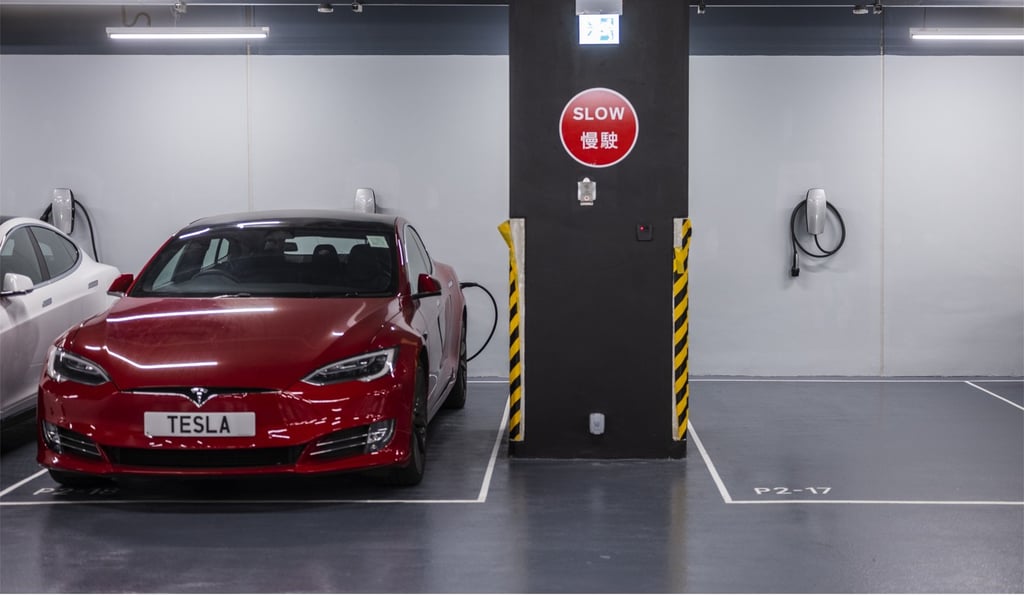Hong Kong needs more action on electric vehicles and better management of charging facilities, government watchdog says
- Office of the Ombudsman said its investigation found a host of problems, including a rising number of complaints about parking spaces designated for electric cars being occupied by other vehicles
- They were 11,080 registered electric private vehicles in Hong Kong last year but only 2,166 public charging facilities

The ombudsman in Hong Kong has called on the government to back up its “green rhetoric” on electric private vehicles with concrete action, including providing more public charging facilities and better management of them.
In a report released on Tuesday, the government watchdog said it launched a direct investigation and found a host of problems in the environmental portfolio, including a rising number of complaints about parking spaces designated for electric cars being occupied by other vehicles.
“The ombudsman does not take a particular stance on the viability of electric vehicles as a policy item and solution to roadside air pollution. But the government has to follow up on its environmental rhetoric with adequate measures, to send a clear signal to the public,” Ombudsman Winnie Chiu Wai-yin said.
There were 11,080 registered electric private vehicles in the city in 2018, but only 2,166 public charging facilities, including those at both government and privately run car parks.

Last week, Secretary for the Environment Wong Kam-sing announced a HK$2 billion (US$256.4 million) subsidy to upgrade parking facilities at old private housing estates to enable electric vehicle charging. The plan is expected to cover 60,000 parking spaces in 4,000 car parks over the next three years.